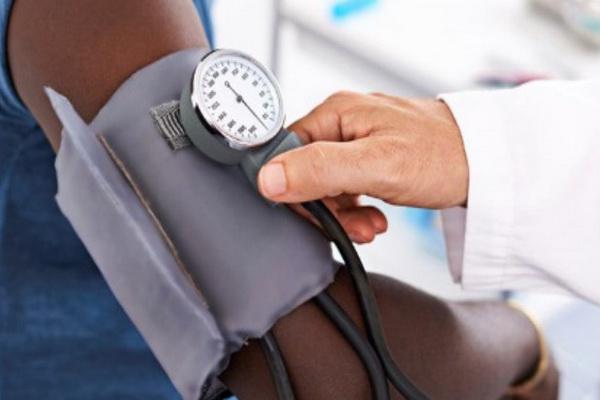Зміст
Studies show that every third person in the world has high blood pressure. Moreover, probably only half of these people control their blood pressure. On the contrary, the other half often simply do not know about their health problems. Only a visit to a specialist allows us to understand what we are dealing with. High-pressure symptoms are often underestimated because they seem natural and are related to factors that affect us every day. An example is fatigue, which we translate, for example, as a result of work. However, it turns out that this may be the main symptom of hypertension, which we underestimate. Below, we present the most characteristic symptoms of high blood pressure, which we sometimes ignore.
1. Epistasis
A sudden change in blood pressure often causes nosebleeds. This is one of the most common symptoms of hypertension. If you experience them regularly, you should consult a doctor, as well as do basic tests to find out the cause of the hemorrhage. Remember, however, that bleeding should occur frequently. If it was disposable, it is not associated with hypertension.
2. Periodic headaches
The same goes for headaches. If they are strong and regularly bother us, they may indicate too high blood pressure. Headaches in people with hypertension often resemble migraines. Huge pain makes functioning difficult and can only be relieved with strong painkillers. In case of recurring headaches, a doctor visit is necessary.
3. Dizziness
This is even a classic symptom of hypertension, although it may also indicate a decrease in pressure or too little oxygen in the brain. Therefore, it is difficult to establish a diagnosis independently, which is not the case with us if we have frequent dizziness. Of course, the best solution is to visit a doctor who will try to diagnose the problem.
4. Chronic fatigue
Fatigue is another significant symptom of hypertension, which we often underestimate because we are used to it. We often translate fatigue as a result of daily work, study and other duties. However, if you notice that, despite regular rest, you feel tired, immediately consult a doctor to prevent chronic fatigue, it is important to regularly take magnesium.
5. Problems with concentration
Concentration disorders are associated with chronic fatigue. Feeling tired may prevent us from focusing even on simple actions. A persistent concentration problem may indicate that your blood pressure is too high. Regular magnesium intake is recommended for this type of disorder. Of course, you also need to see a doctor.
6. Blue feet
This is one of the most characteristic as well as the most dangerous symptoms of high blood pressure. Due to the malfunction of the circulatory system, the legs become brown-blue. This is a sign that the amount of oxygen in the blood is too low to allow it to flow properly. If we notice a symptom of blue legs, we should see a doctor as soon as possible.
7. Swelling of the legs
Leg swelling can signal many diseases, and not just problems with hypertension. This is often a sign of impaired renal function. Our legs swell when the fluid flow in the body is uneven. One reason is too high blood pressure. If swelling on the legs lasts more than two days and is not caused by a mechanical injury, you should first contact a cardiologist or nephrologies.
8. Irritation
Irritation and nervousness are common symptoms of hypertension. Improper functioning of the circulatory system very often affects our well-being and mood. We are then upset and even a little threatened. Symptoms of distress can be alleviated by regular use of lemon balm.
9. Depression
This is easy to miss because bouts of depression are not regular. It is also rarely associated with hypertension. However, it turns out that if it is already diagnosed as a chronic disease, it is often accompanied by hypertension. If you are depressed, you should also check your blood pressure to be able to respond on time. Other symptoms of hypertension can increase depression, so you should get tested as soon as possible to confirm or eliminate hypertension.
Treatment and prevention of hypertension
Both in the treatment and in the prevention of hypertension, doctors recommend:
- A proper diet that should be rich in nutrients and oily fish;
- regular body massages that improve blood flow;
- physical activity, which allows you to saturate the body with oxygen enough.
High blood pressure is a problem that cannot be underestimated. Without treatment, hypertension can cause a heart attack and stroke, which, in the end, pose a serious threat to our lives.








